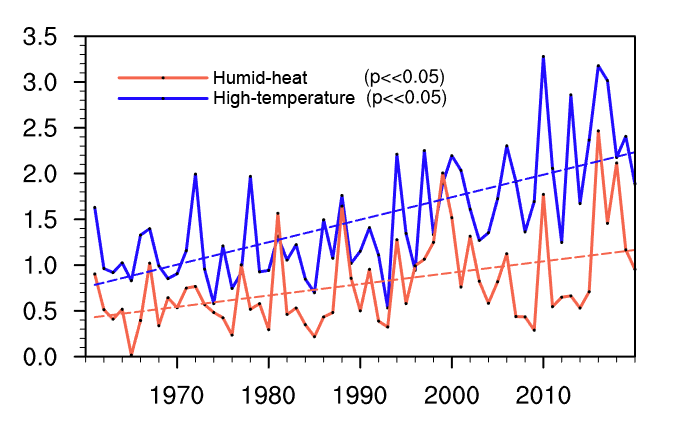Chinese Academy of Sciences
In hot environments, evaporation is considered to be the primary means by which human bodies cool down. However, atmospheric humidity is a crucial factor affecting the efficiency of evaporation, making the combination of hot and humid conditions more physiologically stressful than extreme dry-temperature conditions.
A research group led by Prof. CHEN Huopo from the Institute of Atmospheric Physics of the Chinese Academy of Sciences has characterized and compared extreme day-night compound humid-heat/high-temperature events in China as well as the associated impacts.
The results were published in Atmospheric and Oceanic Science Letters on June 17.
Against the background of global warming, significant increasing trends in the frequency of such extreme events are captured nationwide, but with much stronger trends detected in northern and western China.
The anomalies of humidity play a more important role than those of temperature in the occurrence of extreme compound humid-heat events in most parts of China, but particularly in eastern regions.
Since 1961, the human population and land areas of China have experienced strongly increasing compound heat extremes, with a faster rate of exposure to extreme compound humid-heat events than to extreme compound high-temperature events.
"Understanding the nature of humidity and limiting its occurrence may be an important step in dealing with regional changes in heat stress in the future," said Prof. CHEN.

/Public Release. This material from the originating organization/author(s) might be of the point-in-time nature, and edited for clarity, style and length. Mirage.News does not take institutional positions or sides, and all views, positions, and conclusions expressed herein are solely those of the author(s).View in full here.






